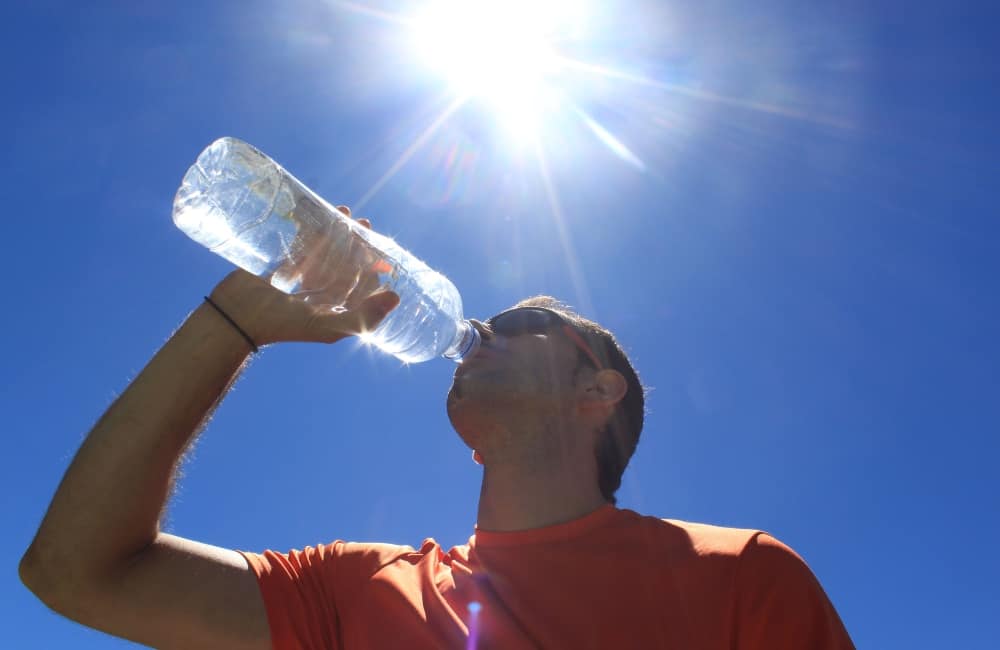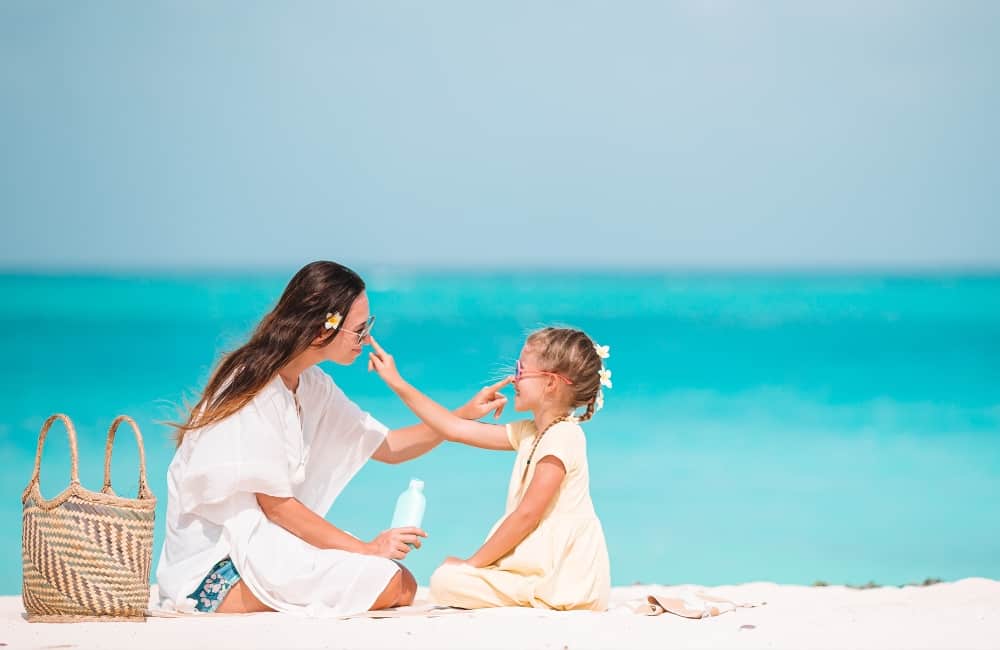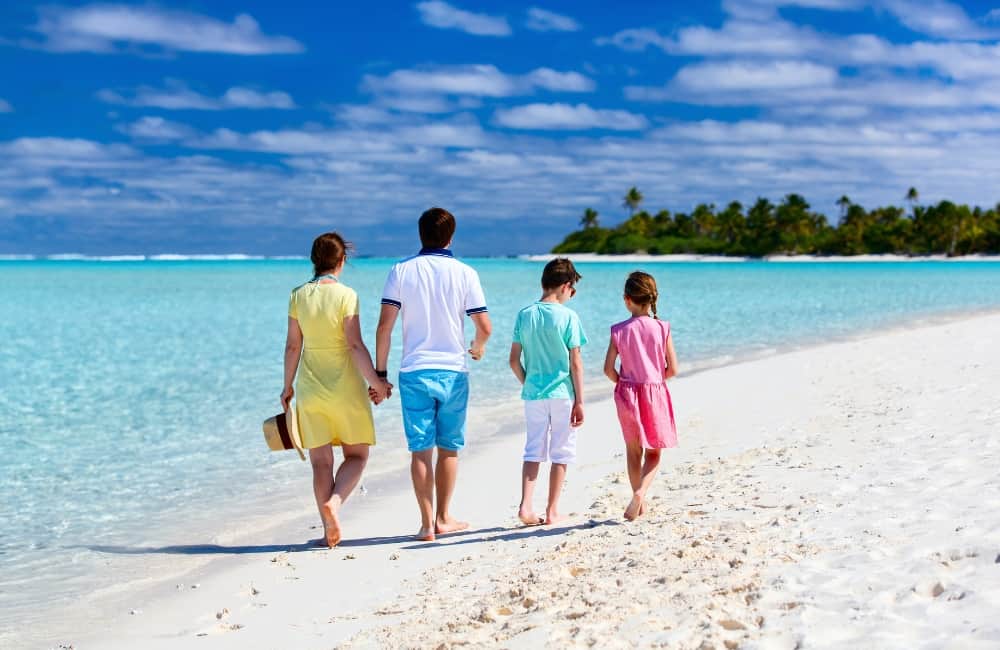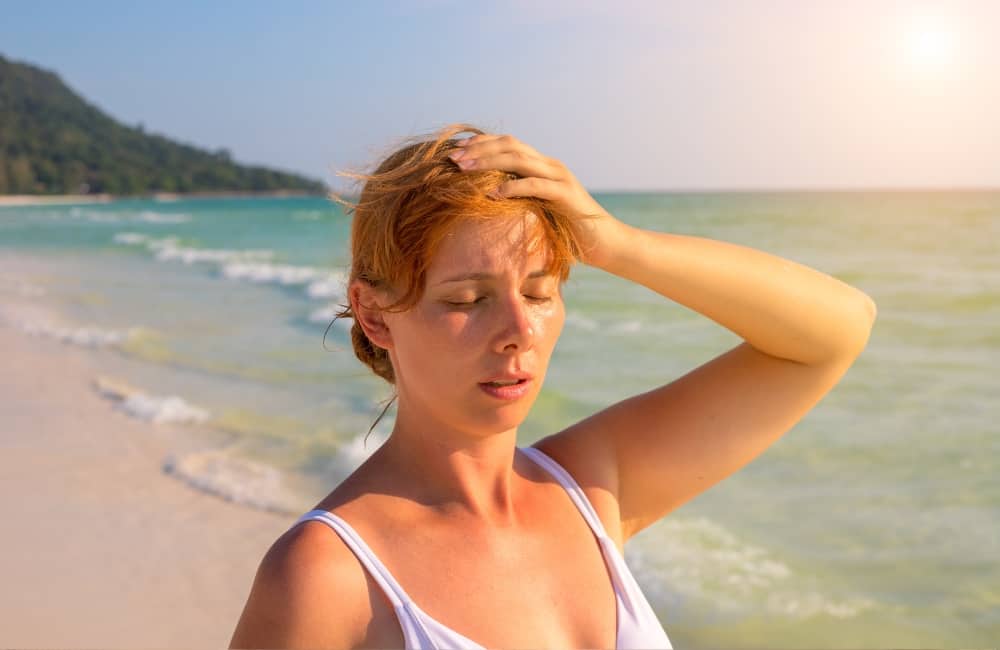Sit back, relax and imagine swapping your wellies for flip flops, your umbrella for sun cream, and the UK’s grey skies for endless sunshine. This is exactly what leads to thousands of Brits packing their bags and setting their sights on warmer climes. But, amidst the excitement of a life of beaches and al fresco dining, there is an often overlooked yet crucial aspect to consider – adapting to the heat. Whether you move to a warm part of the USA or the bustling streets of Singapore, you will need to adapt to a dramatically different, much hotter climate.
Tackling the sweltering heat can be a genuine challenge, especially for those accustomed to the UK’s cooler and wetter weather. While the promise of sunshine and higher temperatures is tempting, adjusting to such a change is not just about swapping a cup of tea for a cool lemonade. It demands an understanding of how the new climate could affect your body and lifestyle.
But don’t worry, we have curated a wealth of advice to help you transition from the comfort of cool winds to the tropical temperatures of your new home. Prepare to embark on your exciting journey into the sun without breaking a sweat (metaphorically, at least) with our comprehensive guide to living in a hot country. Keep reading to find out more.
Adjusting to the Climate and Weather Conditions in Your New Country

There are a lot of reasons to relocate abroad, but the weather is certainly something that sways a lot of people into making the move. Sunshine, blue skies and rainy days being few and far between is enough to make anyone want to pack their bags and head somewhere new, but there are some adjustments that need to be made. When you move from the UK to a warmer climate – such as Australia, Spain or the UAE – you will need to adjust to hotter days, humidity and a lot more sunshine.
1. Invest in High Quality Sun Protection
When you move to a hot country, one of the most important things to do is invest in high quality sun protection. The UV index in these countries can be very high, nothing like what you are used to in the UK, and painful sunburn can occur in just a few minutes. Stock up on suncream with a factor of at least SPF 30, but preferably higher, and clothing with UV protection. Hats and sunglasses are the obvious options, but long sleeved cover ups are also beneficial. Invest in lightweight, breathable clothing, such as items made using cotton and linen, and avoid dark colours. These will help your body to cool effectively.
2. Make Sure You Stay Hydrated

It’s very easy to be dehydrated when you are living in a hot country, and it often happens accidentally. To avoid this, ensure that you are staying hydrated at all times. In hotter climates, you are likely to sweat more, which means that you will need to drink more water to stay hydrated. It’s also a good idea to limit your alcohol and caffeine consumption, as these can dehydrate you even quicker.
3. Take the Time to Acclimatise
It’s essential to gradually adapt to a new climate, and don’t try to become a master at hot weather straight away. Initially, you might find the heat overwhelming, so spend short periods outdoors. You can gradually increase this time as you acclimate to the new temperatures. Don’t expect to adjust overnight. Take it easy for the first few days, especially if you’re moving during the hotter months, and slowly increase your exposure to the new climate to give your body time to adapt.
4. Make Small Adjustments to Your Daily Routine
In hot climates, it’s often cooler in the early morning and late evening, so make the most of this. A lot of people in these countries adjust their schedules accordingly, and it’s a good idea to follow suit. For example, it’s not uncommon to have a siesta in Spain during the hottest part of the day. Similarly, a lot of activities are indoors in the UAE. Try to adjust your schedule to make it as close as possible to the local norms. After all, the locals have experience of living in a hot country. This often means being active in the early morning and late evening and avoiding strenuous outdoor activities during the peak afternoon heat.

5. Embrace Air Conditioning and Insulation
Make sure that your new home has a good air conditioning system. This can make the difference between comfort and discomfort during the hottest parts of the day, and it will make it a lot easier to adapt to a new climate. Fans and natural ventilation can also make a big difference when it comes to keeping your home cool. Remember to close curtains or blinds to block out the sun during the hottest part of the day. Even though insulation is usually associated with keeping heat in, it also helps keep your home cool by preventing hot air from entering.
6. Make the Most of Local Cuisine

Local foods are often well adapted to the hot climate, so try to incorporate some local favourites into your weekly meal plan. In Spain, gazpacho, a type of cold soup, is a popular dish in summer. In the UAE, people consume dates and yoghurt-based drinks to stay energised and hydrated throughout the day. It’s also beneficial to eat light, nutritious and easily digestible meals, especially those that contain lots of fruits and vegetables, as they have high water content. Avoid heavy and fatty foods, as these are harder to digest and require more energy.
7. Listen to Your Body
One of the most effective ways of adapting and acclimating to living in a hot country is to listen to your body. If you’re feeling lightheaded, excessively tired or nauseous, you might be overheating or dehydrated. Don’t push yourself and ensure to take a break, cool down, and rehydrate if you need to. It’s a good idea to have regular medical check ups, especially if you have pre-existing conditions like heart disease or respiratory issues, which can be aggravated by heat.
Tips and Tricks for Staying Cool in a Hot Country

1. Freeze Water Bottles
Stay cool during the day by freezing water bottles overnight. You can carry them around during the day for a refreshing cool drink, or they can be used as an ice pack to cool down your body temperature.
2. DIY Air Conditioning
If you are somewhere without air conditioning and you’re struggling with the heat, make your own DIY air conditioning. Place a frozen ice pack or a bowl of ice in front of a fan for a cool breeze.
3. Cold Showers and Foot Baths
Taking a cold shower or even just soaking your feet in cold water can help lower your body temperature and provide relief from the heat.
4. Avoid Using the Oven
Instead of using the oven or hob, use alternative cooling methods to avoid heating up your home. Consider meals that require minimal or no cooking, such as salads, or use an outdoor grill or barbecue.
5. Use Reflective Window Film
Installing reflective film on your windows can help reduce the amount of heat that gets into your home. Simply, it reflects the heat back outside, helping your home or car to remain cool.
6. Use Desert Cooling Techniques
Ever wondered how people stay cool in the desert? They wear loose, long sleeved clothing, and stay in the shade as much as possible.
7. Open the Windows at Night
If it’s cooler (and safe) at night, open windows at midnight to let in the cool air, and then shut everything in the morning before the day heats up. This keeps the warm air out, and lets the night’s cooler air in.
8. Carry an Umbrella
You might think that saying goodbye to rainy Britain means not having to have an umbrella with you at all times, but they are just as useful in a hot country. An umbrella can provide personal shade and reduce direct exposure to the sun when you’re out and about, but also protect you from those tropical afternoon downpours!
Moving to a hot country

Though moving to a hot country is a big change – let’s face it, extremely hot days are few and far between in the UK – it’s something that you can adapt and acclimatise to. This won’t happen overnight, and it might require you to do things a little differently than you are used to, but you will gradually find living in a hot country easier and easier, the longer you spend there.
If you’d like help moving to your new country, give the team at United International Removals a call. Every year we help thousands of expats and families move to enjoy a sun, sea and sand lifestyle no matter whether it’s in Spain, Portugal or further afield in places such as Dubai, Australia and Florida.

